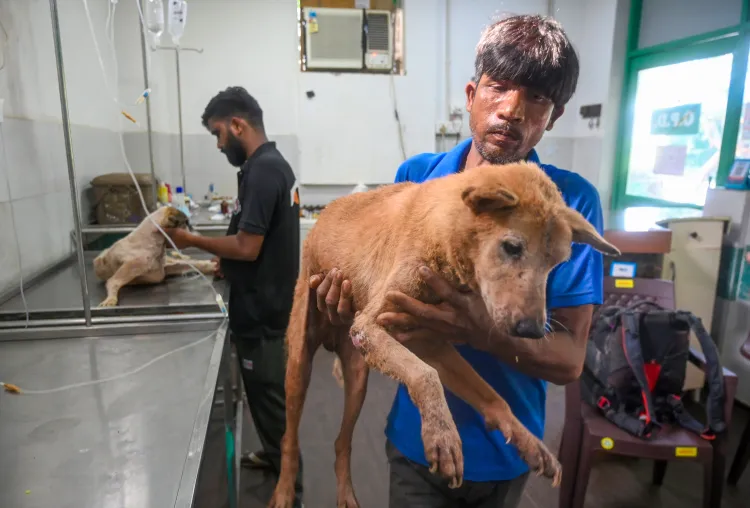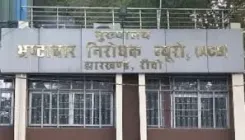Has West Bengal Reduced Dog Bite Cases Through Sterilisation and Adoption Initiatives?

Synopsis
Key Takeaways
- Significant reduction in dog bite cases in West Bengal.
- Effective sterilisation and adoption programmes initiated by the government.
- Community involvement is crucial for the success of these programmes.
- The need for public awareness about responsible pet ownership and animal welfare.
- Funding provided to manage stray dog populations.
Kolkata, Sep 3 (NationPress) Recent statistics indicate a substantial decline in dog bite incidents in West Bengal during the initial seven months of 2025, largely attributed to the sterilisation and adoption programmes instituted by the Mamata Banerjee administration.
A senior government official stated on Wednesday that figures from the first seven months of 2025 reveal a drop in dog bite occurrences across the state.
The report disclosed that 10,264 individuals have sustained injuries from dog bites in the past seven months, a significant reduction from last year's total of 76,486.
Government data suggests that the street dog population has been effectively managed through ongoing sterilisation initiatives. Furthermore, numerous stray dogs are finding new homes and facilities in both urban and rural settings via community adoption initiatives. As per the official, this approach not only secures the safety of the dogs but also minimizes their interactions with humans.
Kolkata city, along with nearby Howrah and Bidhannagar municipalities, has witnessed a high stray dog population. In response, the state's Animal Resources Development Department has allocated funds to these municipalities for their sterilisation programmes.
An official from the department remarked, “The government’s relentless efforts have been instrumental in diminishing instances of stray dog bites. Both sterilisation and adoption have enhanced safety for dogs and humans alike. To date, the department has provided Rs 1 crore to Kolkata, Howrah, and Bidhannagar Municipal Corporations for sterilisation efforts. We are pleased with the municipalities' progress.”
A representative of the Kolkata Municipal Corporation commented, “We do not perceive dogs as adversaries. Instead, they should be acknowledged as integral members of our community. If the adoption and sterilisation initiative is sustained over the long term, it will secure safety for both humans and dogs.”
Kolkata Municipal Corporation Deputy Mayor Atin Ghosh added, “We are the sole municipality in the nation with a dedicated department for stray dogs. There are 19 rabies prevention centres across the city. Additionally, we sterilise an average of 25-30 dogs daily. We are committed to maintaining order with respect to the stray dog population in our city.”
Nonetheless, the state’s Animal Resources Development Minister, Swapan Debnath, noted a lack of awareness among the public regarding Animal Birth Control.
“We have implemented measures to safeguard both stray dogs and the general populace. However, in many instances, when we attempt to catch dogs for sterilisation in various areas, local residents express opposition. They often respond negatively to those involved in this work. It is crucial for the public to become more responsible and informed to maintain a balance of coexistence between humans and dogs in our society.”







